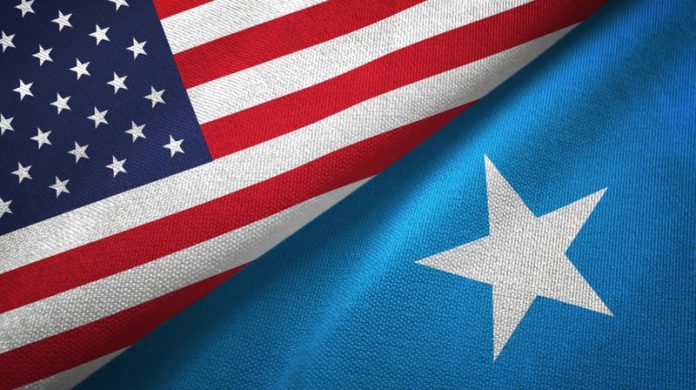According to a Freedom House report, on March 14, the conservative Heritage Foundation hosted the president of Somaliland, a breakaway region of Somalia “whose self-declared independence… is not internationally recognized.” Three senators from Idaho, Maryland, and South Dakota, Jim Risch, R-Idaho, Chris Van Hollen, D-Md., and Mike Rounds, R-S.D., introduced the Somaliland Partnership Act three days later. Their bill paints a rosy picture of Somaliland and calls for the United States to engage with it more closely. This bill is based on a slew of inaccurate and incomplete data. (According to the Freedom House report, Somaliland has “seen a consistent erosion of political rights and civic space,” with minority clans facing “political and economic marginalization,” as well as a serious social problem of violence against women.)More concerning, however, is that if this bill passes, Somalia, a poor country already mired in chaos, will be thrust into even more danger.
In a nutshell, as envisioned in this legislation, a partnership with the United States would provide Somaliland with the financial and military resources it requires to complete its separation from Somalia. It would also provide legitimacy to Somaliland. The claim by Somaliland’s leaders that it is a de facto country in full control of its “territory” is false: The two communities whose territory the presumed separation border passes are adamantly opposed to Somaliland’s secession. Somaliland’s secession cannot be a reality on the ground without the consent of these two communities (the Warsengeli and Dhulbahante tribes), as Risch’s bill claims. As a result of the lack of consent from these two communities, Somaliland is forced to resort to violence and conquest.The only viable option. Why would the United States get involved in such a volatile situation?
“Recognizing Somaliland’s independence would enable the United States to hedge against further deterioration of its position in Djibouti, which is under Chinese control,” writes Heritage Foundation’s Joshua Meservey. Similarly, Risch emphasizes the importance of Somaliland’s “geographic location in the Horn of Africa and adjacent to the Gulf of Aden” in his bill’s rationale. So, for what they perceive to be America’s strategic interests, the Heritage Foundation and several US senators have decided to bypass Somalia’s legal authority and deal with a secessionist entity, regardless of the consequences.
This seems to me to be a flashback to a series of decades-old events that my father and other family elders related to me as a child. I grew up in a house steeped in the history of the conflict with Britain, which invaded our country and ruled over our people. I am the great-grandson of Sultan Muhammad Mahmud Ali (nicknamed Awl), the Warsangeli tribe’s sultan, who signed a “protection treaty” with the British government in 1886, one of six such treaties with Somali tribes that made up the Somaliland British Protectorate, which lasted until 1960.
Without the Somali people’s knowledge, foreign men drew lines on paper to divide them during colonial times. It’s happening again today, thanks to conservatives in Washington.
Without the Somalis’ knowledge, foreign men drew lines on paper to divide them. Today, men in Washington — almost entirely men this time — are debating the fate of Somalis as part of a global competition with China. Risch and the Heritage Foundation are colonial-era relics hellbent on rearranging Africa in their own image. Somalia is fair game for them, a guinea pig that can be changed with the stroke of a pen. If their intentions were genuine, they would want to talk to all sides of this conflict, and they would not have ignored the Federal Republic of Somalia’s government with such arrogance. It is a well-known fact that government is fragile and unstable,But that isn’t a good reason to sabotage it even more.
President Muse Bihi Abdi of Somaliland has finally found dancing partners in American right-wingers eager to exert power in the Horn of Africa, in his quest to reopen a wound that had healed long ago. The border he wants to resurrect in order to secede from Somalia has a history of humiliation and pain, which has been experienced by tribes in the east of what he now calls Somaliland, not by him or his tribe.
It was a watershed moment when the original Somaliland protectorate voluntarily united with Somalia in 1960, erasing the colonial border between them. In the vast land of our ancestors, communities that had been torn apart for decades were finally free to move and mix. Bihi and his allies now want to resurrect that border, safe in the knowledge that if things go their way, neither they nor their tribesmen will feel the knife’s edge of separation. Risch and the Heritage Foundation have never met with those whose lives or families would be torn apart once more. They are scribbling words on paper in cozy offices thousands of miles away from the people whose fate they are deciding, as long-ago colonial administrators did They are making a decision.
Somaliland’s independence narrative is based on a deceptive mix of truths, half-truths, and outright lies that it has been unable to sell to the Somali people, the African Union, or anyone else in the world, with the exception of the would-be independent island of Taiwan, which is based on political considerations. It’s no surprise that Bihi has found a sympathetic ear and a helping hand at the Heritage Foundation, which is notorious for climate denial, efforts to suppress minority votes in the United States, and inflaming moral panic over “critical race theory.” It is deeply regrettable to see Somaliland’s self-proclaimed leaders seeking validation from forces in the United States who are committed to a racist and neocolonialist agenda. But there’s no room for pity when it comes to The fate of so many poor Somalis is in jeopardy. Only good people can stand up and tell the Americans that they are wrong: Hands off Somalia.

